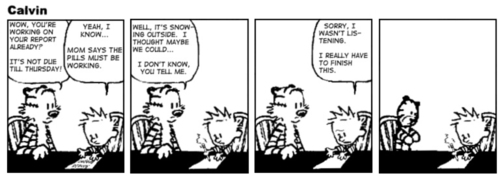Korea Blocks Blog Access
Hot from the inbox:
Fellow blogger,
I am sending this message to the bloggers on my blogroll (and a few other folks) in the hopes that some of you will print this, or at least find it interesting enough for comment. I’m not usually the type to distribute such messages, but I felt this was important enough to risk disturbing you.
As some of you may already know, a wing of the South Korean government, the Ministry of Information and Culture (MIC), is currently clamping down on a variety of blogging service providers and other websites. The government is attempting to control access to video of the recent Kim Sun-il beheading, ostensibly because the video will have a destabilizing influence. (I haven’t seen the video.)
Many Western expat bloggers in Korea are in an uproar; others, myself included, are largely unsurprised: South Korea has not come far out of the shadow of its military dictatorship past. My own response to this censorship is not so much anger as amusement, because the situation represents an intellectual challenge as well as a chance to fight for freedom of expression. Perhaps even to fight for freedom, period.
South Korea is a rapidly evolving country, but in many ways it remains the Hermit Kingdom. Like a turtle retreating into its shell, the people are on occasion unable to deal with the harsh realities of the world around them. This country is, for example, in massive denial about the atrocities perpetrated in North Korea, and, as with many Americans, is in denial about the realities of Islamic terrorism, whose roots extend chronologically backward far beyond the lifetime of the Bush Administration. This cultural tendency toward denial (and overreaction) at least partially explains the Korean government’s move to censor so many sites.
The fact that the current administration, led by President Noh Mu-hyon, is supposedly “liberal”-leaning makes this censorship more ironic. It also fuels propagandistic conservative arguments that liberals are, at heart, closet totalitarians. I find this to be a specious caricature of the liberal position (I consider myself neither liberal nor conservative), but to the extent that Koreans are concerned about what image they project to the world, it is legitimate for them to worry over whether they are currently playing into stereotype: South Korea is going to be associated with other violators of human rights, such as China.
Of the many hypocrisies associated with the decision to censor, the central one is that no strong governmental measures were taken to suppress the distribution of the previous beheading videos (Nick Berg et al.). This, too, fuels the suspicion that Koreans are selfish or, to use their own proverbial image, “a frog in a well”– radically blinkered in perspective, collectively unable to empathize with the sufferings of non-Koreans, but overly sensitive to their own suffering.
I am writing this letter not primarily to criticize all Koreans (I’m ethnically half-Korean, and an American citizen), nor to express a generalized condemnation of Korean culture. As is true anywhere else, this culture has its merits and demerits, and overall, I’m enjoying my time here. No, my purpose is more specific: to cause the South Korean government as much embarrassment as possible, and perhaps to motivate Korean citizens to engage in some much-needed introspection.
To this end, I need the blogosphere’s help, and this letter needs wide distribution (you may receive other letters from different bloggers, so be prepared!). I hope you’ll see fit to publish this letter on your site, and/or to distribute it to concerned parties: censorship in a supposedly democratic society simply cannot stand. The best and quickest way to persuade the South Korean government to back down from its current position is to make it lose face in the eyes of the world. This can only happen through a determined (and civilized!) campaign to expose the government’s hypocrisy and to cause Korean citizens to rethink their own narrow-mindedness.
We can debate all we want about “root causes” with regard to Islamic terrorism, Muslim rage, and all the rest, but for me, it’s much more constructive to proceed empirically and with an eye to the future. Like it or not, what we see today is that Korea is inextricably linked with Iraq issues, and with issues of Islamic fundamentalism. Koreans, however, may need some persuading that this is in fact the case– that we all need to stand together as allies against a common enemy.
If you are interested in giving the South Korean Ministry of Information and Culture a piece of your mind (or if you’re a reporter who would like to contact them for further information), please email the MIC at:
webmaster@mic.go.kr
Thank you,
Kevin Kim
bighominid@gmail.com
http://bighominid.blogspot.com
(Blogspot is currently blocked in Korea, along with other providers; please go to Unipeak.com and type my URL into the search window to view my blog.)
PS: To send me an email, please type “hairy chasms” in the subject line to avoid being trashed by my custom-made spam filter.
PPS: Much better blogs than mine have been covering this issue, offering news updates and heartfelt commentary. To start you off, visit:
http://marmot.blogs.com/korea/
http://jeffinkorea.blogs.com/
http://aboutjoel.com/
http://oranckay.net/blog/
http://kimcheegi.blogs.com/
http://gopkorea.blogs.com/flyingyangban
http://rathbonepress.tblog.com/
http://blog.woojay.net/
Here as well, Unipeak is the way to go if you’re in Korea and unable to view the above blogs. People in the States should, in theory, have no problems accessing these sites, which all continue to be updated.
PPPS: This email is being cc’ed to the South Korean Ministry of Information and Culture. Please note that other bloggers are writing about the Korean government’s creation of a task force that will presumably fight internet terror. I and others have an idea that this task force will serve a different purpose. If this is what South Korea’s new “aligning with the PRC” is all about, then there’s reason to worry for the future.
PPPS: This email is being cc’ed to the South Korean Ministry of Information and Culture. Please note that other bloggers are writing about the Korean government’s creation of a task force that will presumably fight internet terror. I and others have an idea that this task force will serve a different purpose. If this is what South Korea’s new “aligning with the PRC” is all about, then there’s reason to worry for the future.
Note: I’ll be happy to post letters for any other bloggers who ask, or help out in any other way possible. Drop me a line in the comments or at:
j@DELETETHESECAPScosmicbuddha.com
I am an avid reader of many Korea-based blogs and wrote a post about it with many excellent links here:
http://www.cosmicbuddha.com/blog/archives/000257.html
Fight the power, brothas!




3 Comments
Kevin Kim
Arigato gozaimasu!
Kevin
yomama
uh, how are you ethnically half-korean?
Oh, and “Power to the BlogPeople!”, I say!
Kevin Kim
My Dad’s Causasian (the scientific term is White Cracker) and my Mom’s Korean (the epithet found in Clavell novels is Cowardly Garlic-eater).
This doesn’t translate to zero ethnicity, so I say I’m ethnically half-Korean. There’re a lot of us. I’d say there IS a such thing as half-Korean ethnicity, though I suppose one could argue the point. It’d be a wider, vaguer ethnic grouping than more distinct ones, but even when you start parsing the distinct ones, you see how much diversity they already include.
Having just looked up “ethnic” in the online Webster, I can say with assurance that people often use the terms “race” and “ethnicity” interchangeably because the terms’ semantic fields contain a lot of overlap. They’re not exactly synonymous, of course, but I’m well within bounds to say “ethnically half-Korean” instead of “racially half-Korean.” But again, it depends on how picky one wants to be about terminology. If I were an ethnographer, I might bridle at “sloppy” usage of terms, but I’m just your average hominid, so it’s no skin off my balls.
Thanks for the support, all.
Kevin